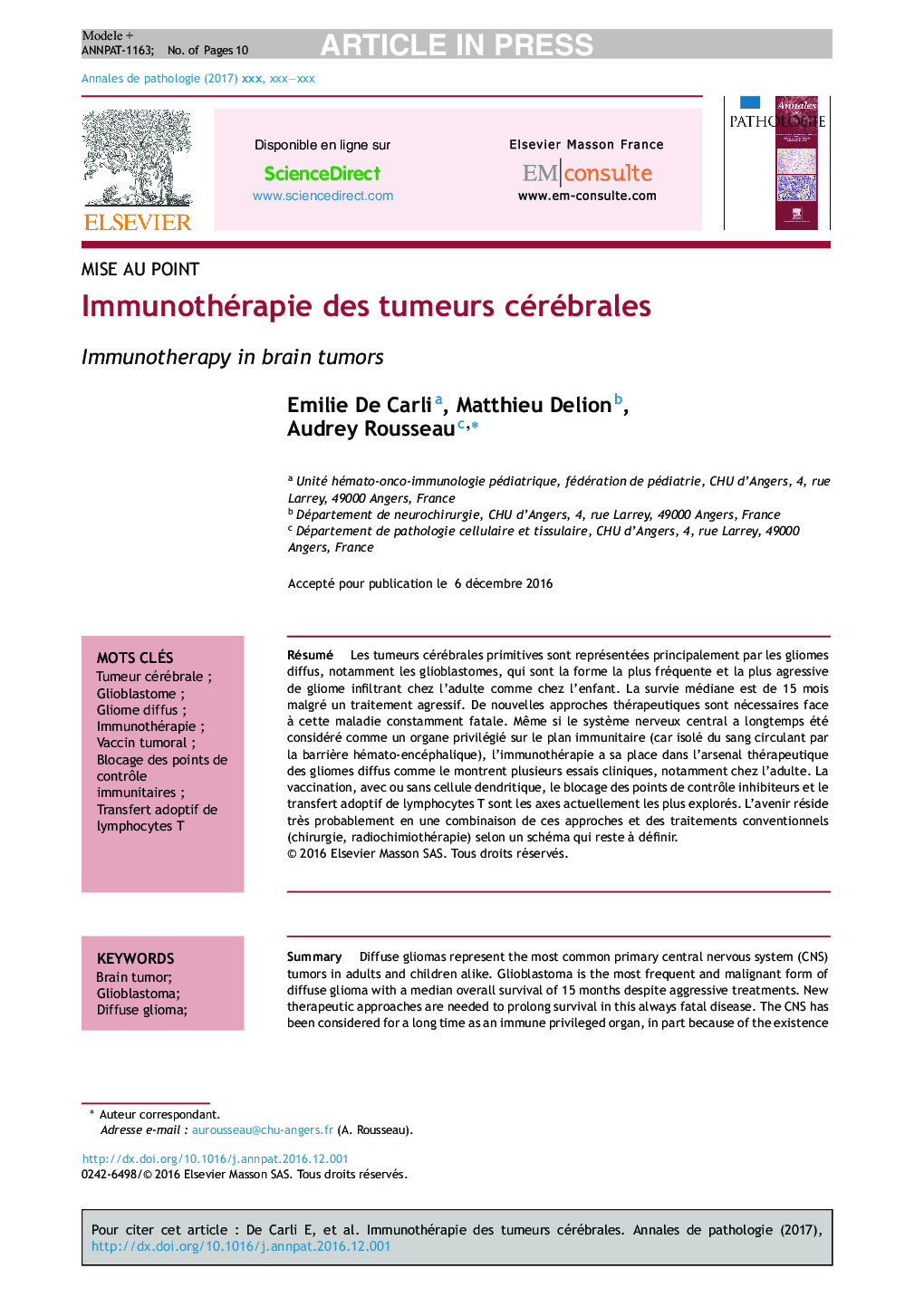| Article ID | Journal | Published Year | Pages | File Type |
|---|---|---|---|---|
| 5715761 | Annales de Pathologie | 2017 | 10 Pages |
Abstract
Diffuse gliomas represent the most common primary central nervous system (CNS) tumors in adults and children alike. Glioblastoma is the most frequent and malignant form of diffuse glioma with a median overall survival of 15 months despite aggressive treatments. New therapeutic approaches are needed to prolong survival in this always fatal disease. The CNS has been considered for a long time as an immune privileged organ, in part because of the existence of the blood-brain barrier. Nonetheless, immunotherapy is a novel approach in the therapeutic management of glioma patients, which has shown promising results in several clinical trials, especially in the adult population. Vaccination, with or without dendritic cells, blockade of the immune checkpoints, and adoptive T cell transfer are the most studied modalities of diffuse glioma immunotherapy. The future most likely resides in combinatorial approaches, with administration of conventional treatments (surgery, radiochemotherapy) and immunotherapy following yet to determine schedules.
Keywords
Related Topics
Health Sciences
Medicine and Dentistry
Pathology and Medical Technology
Authors
Emilie De Carli, Matthieu Delion, Audrey Rousseau,
